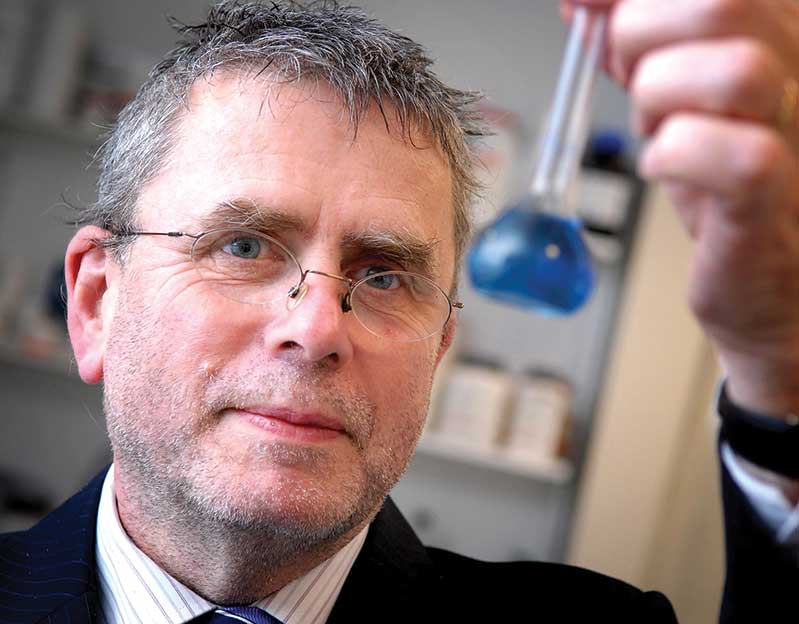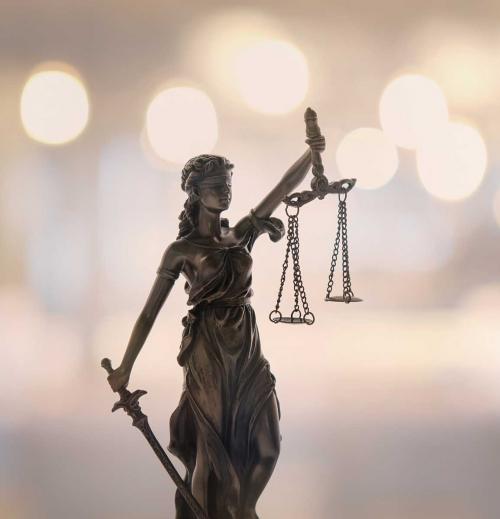In 1780, the traders and seamen in the port of Wells Harbour, England, were fed up. For at least two decades, they had faced the growing challenge of harbour silting obstructing access for lucrative Norfolk grain exports. The docks were no longer accessible by ship, and in the traders’ minds the blame was clear. Through massive land embankments and reclamations on the harbour channel, rich local landholders had choked off the vigorous tidal bore that used to scour the harbour clean. The ensuing legal battles, Folkes v Chadd, would set two historic legal precedents.
Over a two-day trial in August 1781, plaintiffs seeking removal of the embankments brought forward a series of local witnesses – pilots, mariners and seamen, men who had known the harbour intimately over lifetimes of experience. Again and again, they testified to the degradation of the harbour after the construction of the embankments, based on their own long years of observations.
On the second day, lawyers for the defendant, Sir Martin Browne Folkes, presented just one witness: Mr Robert Mylne, Fellow of the Royal Society and owner of a reputed engineering and architectural practice in London. In authoritative tones, he dismissed the embankments as not being causal to the problem, in favour of the effects of wind and tides carrying estuarine sediments along the Norfolk coast and into Wells Harbour.
Awed by the gravitas of the esteemed man of science, the jury was convinced. Locals were outraged. How was it possible that the single opinion of a London expert, after only the shortest examination, could carry the day over lifetimes of experience of local observers?
Lawyers for the Harbour commissioners sought leave to appeal. After consideration, the royal judges of the King’s Bench agreed – setting the first key precedent. After Mylne’s testimony, the plaintiffs had not been granted the opportunity to seek their own expert witnesses. ‘In matters of science’, the Bench ruled, ‘the reasonings of men of science can only be answered by men of science.’ A new era of litigation was born: the era of the expert scientific witness.
The story doesn’t end there. Coming into round two, both sides upped the ante. The plaintiffs sought the advice of a cadre of ‘big guns’ – expert engineers, all senior, well-reputed and experienced with river navigation, canals and drainage. They were guided by the legal assistance of George Hardinge, Barrister of the Middle Temple and solicitor-general to Queen Charlotte. The defendant added just one name: John Smeaton, another Fellow of the Royal Society, and considered England’s highest authority on harbours.
The case came back to trial in July 1782. The outcome hinged on a complicated legal argument about the admissibility of Smeaton’s testimony. Being based on principles of natural philosophy that Smeaton could not have directly observed, but had deduced, was his testimony fact or opinion?
Smeaton’s testimony was ruled inadmissible. Round two went to the plaintiffs. Sir Martin Browne Folkes was quick to appeal, and the case was ultimately adjudicated by one of the 18th century’s most influential judiciary figures: Lord Mansfield, Chief Justice of the King’s Bench. His seminal decision has been widely argued to have established the practice of partisan expert testimony. Notwithstanding that Smeaton’s testimony was opinion ‘… the whole case is a question of opinion from the facts agreed upon. Nobody can swear that it was the cause; … It is a matter of judgment, what has hurt the harbour.’
Role of the expert witness
More than two centuries later, the same questions are fundamental to the standing of the expert witness. Is the witness testifying to fact or opinion? Does the witness have training and experience to form a qualified opinion? What assumptions has the witness made in forming that opinion?
Dr Philip Maynard at the Centre for Forensic Science at University of Technology Sydney teaches a course in ‘Expert Evidence Presentation’. A forensic scientist and RACI member, he has expertise in the areas of trace evidence and chemical/arson analysis. Speaking to Chemistry in Australia, he expanded the point to ask ‘Is this topic [for the expert opinion] a peer-reviewed, accepted science? Is the topic capable of producing a hypothesis, and is the hypothesis capable of being falsified? Does the expert provide some analysis which the judge and jury could not do for themselves?’
These questions were fundamental to the 2011–12 case of Gordon Wood’s successful appeal to the NSW Supreme Court against his conviction for the murder of Caroline Byrne. The original trial testimony of key Crown expert witness Associate Professor Rod Cross was called into question. Were Cross’s experimental designs – with strong men literally throwing women into pools, versus women jumping or diving – suitably robust and relevant for him to draw the conclusion that Byrne had been thrown in a ‘spear-like’ fashion from the cliffs at Sydney’s famous suicide spot The Gap? Was the assumption that the women in his experiments were not struggling relevant to Cross’s conclusion that Byrne could not have jumped and still reached her point of impact?
The judgement by Justice Mclellan in the Wood case is also particularly interesting. Mclellan notes that Cross identified problems with his own testimony that he elected not to raise with the court. ‘Given the significance of the assumed landing spot to Associate Professor Cross’s calculations this is, to say the least, surprising. I would have expected that if he knew that the landing place had been misidentified he would have raised the issue when he first knew of the error.’ Ultimately, Mclellan ruled that ‘The verdict is unreasonable and cannot be supported by the evidence’.
Over the past two centuries, the use of expert witnesses has become substantially adversarial. The common perception that experts are just ‘guns for hire’ is exacerbated by the lucrative industry that has grown up around expert witness services, often at rates of hundreds of dollars per hour. So what happens when experts twist, misuse or ignore relevant information to help their client’s case?
In most jurisdictions, the rules and guidance dictate that the first responsibility of the expert witness is to the court itself, and ultimately to the truth.
RACI Fellow Emeritus Professor Brynn Hibbert, recently appointed as a Member of the Order of Australia (AM) for ‘significant service to science in the discipline of chemistry, to professional societies, and to sport through illicit drug profiling’, has a great deal of experience as an expert witness, and is an engaging and delightfully entertaining speaker on the topic.
Speaking at the 2018 RACI Fellow’s Lunch in New South Wales, Hibbert recounted his role acting for the defence in a Customs prosecution for the alleged illegal import of 9.2 million cigarettes. ‘The customs had cut corners and instead of using the NMI or state forensic labs had asked Philip Morris to analyse around 10 of the putative cigarettes. The certificate had come back “nicotine detected”’, said Hibbert in his speech.
‘Apart from the lack of a sampling strategy, or the possibility of contamination in a lab in which an awful lot of nicotine is routinely analysed not under forensic conditions, merely detecting nicotine might not have been enough to uniquely establish the presence of tobacco. What plants have nicotine? Tobacco, potato peelings, tomatoes, in fact any member of the very large nightshade family, in which nicotine is a natural insecticide. Of course to establish that we are dealing with tobacco was straightforward – just quantify the nicotine (there is heaps more in tobacco) or establish the pattern of the other alkaloids which can fingerprint the plant, but all the court had was “nicotine detected” and that was, in my opinion coming from a drug background, not enough.’
‘Under cross-examination I had to admit that observation was an important part of analysis [with] the prosecution homing in on the bleeding obvious – namely the 9.2 million white tubes. They were duly found guilty, but I think everyone was grateful for the light chemical relief.’
Says Hibbert: ‘The reason I can sleep at night is the Expert Witness Code of Conduct contained within Schedule 7 of the Uniform Civil Procedure Rules 2005. … I am required to fess up to anything I know that I believe is relevant whether it helps ‘my’ client or not. Indeed the nicest thing a barrister has said to me is “Well Professor Hibbert – you are very fair” (and he wasn’t smiling)’.
Immunity and the expert witness
In Australia, expert witnesses have limited immunity from civil suit relating to their role in judicial proceedings, extending to actions outside the court that are ‘intimately connected’ with the giving of evidence in court (such as preparatory steps). The aim is to both limit an endless cycle of re-litigation, and support witnesses to give evidence freely for the higher interest of justice.
That immunity obviously does not extend to intentional untruth, the fabrication of evidence or giving false evidence to the court. However, the principle itself has been mostly removed in the UK in the 2011 Jones v Kaney case. This hinged on the fact that a plaintiff’s own expert witness signed a document that they did not believe to be true, and in doing so harmed the settlement received by the plaintiff in a personal damages case. Jones was permitted to sue Dr Kaney for the financial effect of her compromised advice. Over the years that have followed, this decision has apparently not opened the floodgates to re-litigation, and other countries, including Australia, are considering following suit in limiting or eliminating expert immunity.
That leaves plenty of scientists still willing to stand as experts in their particular field. Maynard offers a range of very useful tips for the novice expert witness in the courtroom. Most particularly, he emphasises that you must remain within your area of expertise when being asked, and be strict – don’t be led by a chain of questioning.
Traps to avoid include getting offended, being perceived as evading a question (‘You will be in for a long afternoon’, says Maynard), and falling for verbal tricks, double negatives or complicated questions. Just ask for the question to be rephrased.
‘Answering questions within your area of expertise, an expert witness has privileges which are not granted to eye-witnesses’, says Maynard, ‘You may state an opinion, and you may refer to published scientific literature produced by other scientists, which strictly counts as hearsay evidence. These privileges are tightly limited by legislation and by past judgements, and you should not presume to offer unsupported opinions’.
As a more recent innovation, courts in some jurisdictions practise ‘concurrent evidence’ (known as ‘hot tubbing’) to limit the adversarial aspects of ‘duelling experts’. With lawyers being excluded from the room, the expert witnesses for both sides are asked to meet and discuss key evidence. They prepare a joint report stating matters agreed, not agreed and the associated reasons for disagreement, which is tendered to the court. In many cases, this can help the parties find a settlement outside the court. Says Hibbert ‘I think I might have done one of the first [in Australia] with Graham Johnston on an analogue drug case. I lost – the court preferred Graham’s view, but we were commended for our cooperation’.
Ultimately, the criminal courts rely heavily on scientific witnesses – there could easily be a another article about forensic science in the courtroom, its limitations and ‘the CSI effect’. In civil cases, the use of experts tracks the money – large-value cases pay for a lot more advice.
After Lord Mansfield ruled to admit Smeaton’s expert opinion on the Folkes v Chadd case, who won? According to the Norwich Mercury at the time (10 April 1784), following the third trial, the injunction against Wells Harbour Commissioners was lifted and the Commissioners were free to ‘throw down the bank’. The bells of Wells Church were rung and after a ‘most excellent’ dinner provided by the Royal Standard Inn, the Commissioners and a great body of the public proceeded to the embankment where a very large breach was made and the tide returned to the ancient parts of the harbour. The whole affair was accompanied by music, flags and discharge of cannon to celebrate the public nuisance being removed and the trade of Wells once again being allowed to flourish upon the ruins of the bank, for a time.




